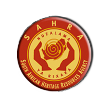THIS IS THE ARCHIVE FOR SAHRIS 1.0
THIS SITE IS NOW AN ARCHIVE AND IS NOT SUITABLE FOR MAKING APPLICATIONS
Please be aware that no content and application creation or changes to information on this version of SAHRIS will be retained.
To make applications or utilise SAHRIS for the creation of information, please use the new site:
https://sahris.org.za
Changes to SAHRIS!
The South African Heritage Resources Information System (SAHRIS) has undergone a generational upgrade and restructure. These changes to the site include, but are not limited to:
- A new & modernised look and layout
- Improved site usage flows with respect to applications and content creation
- Improved site performance and stability
Launch for the new version of SAHRIS occurred on Monday the 30th of October 2023.
The new site can be found here:
SAHRIS | SAHRIS
DECLARATION OF TWO SIGNED AND AUTHENTICATED COPIES OF THE FREEDOM CHARTER AS SPECIFICALLY DECLARED HERITAGE OBJECTS
- 62 reads
ObjectID:
Organisation:
DeclarationType:
GazetteNo:
Gazette Date:
NoticeNo:
Notice Date:
GazetteFile:
| Attachment | Size |
|---|---|
| 163.43 KB |
ShortDescription:
Both copies of the Freedom Charter identified, have original signatures of the presidents of the five organisations involved in drafting the Freedom Charter. They were signed on various dates in 1960 and include signatures of: Chief Albert Luthuli, then President of the African National Congress (In one copy of the Freedom Charter, Chief Luthuli signed on 24 January 1960 and on the other it appears to be 24 November 1960) Mr Leon Levy, then President of the South African Congress of Trade Unions; Dr Monty Naiker, then President of the South African Indian Congress; Mr Jimmy La Guma, then President of the South African Coloured People’s Organisation; and Mr Pieter Beyleveld, then President of the South African Congress of Democrats.
FullDescription:
On 10 March 2010, SAHRA prohibited the export of a signed copy of the Freedom Charter due to its association with leaders and events of importance in the history of South Africa. This copy is at the National Archives and Records Service of South Africa. Subsequently, SAHRA conducted research into the existence of an original signed copy of the Freedom Charter and/or a handwritten document. In the process, the existence of another signed copy was brought to SAHRA’s attention. This copy is at Lilliesleaf.
In the absence of a verified original document, SAHRA has identified these two copies, as having qualities so exceptional that they are of special national significance and warrant national declaration as the start of a larger serial declaration of significant Freedom Charter documents. These two signed copies represent the endorsement of the Freedom Charter by the African National Congress, South African Indian Congress, South African Coloured People’s Organisation, South African Congress of Democrats, and the South African Congress of Trade Unions (who formed the Congress Alliance and were the organisers of the 1955 Congress of the People where the Freedom Charter was adopted). The African National Congress is the only surviving signatory.
These documents further represent the democratic approach taken in documenting the vision of ordinary South Africans in drafting the Freedom Charter. It was the first time in South African history where all South Africans were given an opportunity to voice their dreams and hopes for a future democratic South Africa irrespective of race, colour, education, language, sex, personal beliefs and organisational affiliation.
It was a unique and imaginative response to the ever increasing repression of the Apartheid government. The Freedom Charter gave substance to the notions of freedom, national liberation and self determination in articulating what these would practically mean and, therefore, gave the liberation movement a uniform and coherent vision for a future South Africa. The Charter became the basis of the movement with organisations continually adopting it in the 1980s including the United Democratic Front.
The Constitution of the new post-apartheid democratic South Africa is based on the demands and rights reflected in the Freedom Charter and encapsulates its vision as a goal for a fully integrated and inclusive South African nation.
